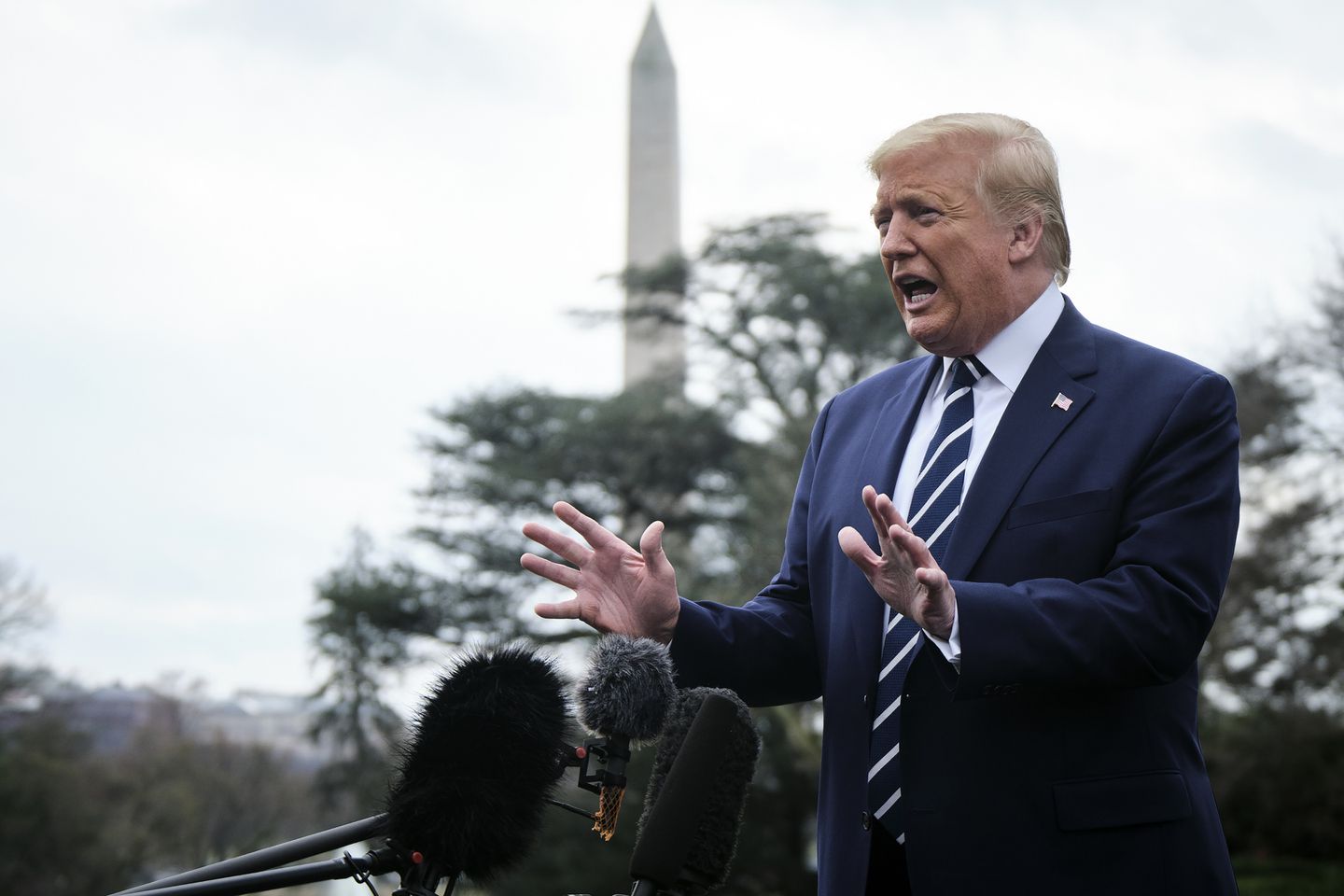Trump’s presidency has made room for racism in America

As protests against racism and police brutality continue around the world, Americans are pointing to President Donald Trump’s blatant instances of bigotry as obvious contributions to the tense country we live in today.
Since Trump took office in January 2017, America has seen a significant increase in representation of white nationalism and white supremacy. This increase is due in part to Trump turning a blind eye to many racially charged events that have occurred throughout his presidency.
The Anti-Defamation League found that acts of white supremacist propaganda almost tripled from 2017 to 2018, jumping from 428 to 1,214 cases. Last year, the acts more than doubled to 2,713. White supremacists advertise their support of white dominance by distributing leaflets, stickers, banners and posters around the country. Their most common target is college campuses.
It began with the white nationalist-led march in Charlottesville, Virginia, in August 2017. Self-described white nationalists, neo-Nazis, Klansmen and others protested against the removal of Confederate General Robert E. Lee, and violence broke out when they were faced with those who were against their racist stance.
As the anti-white nationalists attempted to silence the “Unite the Right” protest, self-proclaimed white supremacist Alex Fields Jr. drove his car into the group, killing one and injuring 19 people, according to the Washington Post.
Trump refused to denounce the violent acts and racist mindsets, only stating that there was an “egregious display of hatred, bigotry and violence on many sides” at an August 2017 press conference during which he was signing a bill to reform the Department of Veteran Affairs.
A USA Today article from an April 2019 press conference demonstrated Trump’s consistent refusal to admit the wrongdoings of the people involved in the Charlottesville protest. At the press conference, Trump recounted that there were “fine people on both sides” of the protest.
By attempting to say nothing of the white supremacists of the Charlottesville march, Trump allowed further promotion of racism in America.
Capital News Service interviewed white nationalist and activist Thomas Rousseau, who felt that Trump was a white nationalist himself. He recounts times that the president used racial slurs and made xenophobic and anti-Semitic remarks about the Mexican and Jewish populations of the U.S., calling Trump’s words “encouraging.”
In 2018, the FBI released a statement warning the public of a “spike” in hate crimes committed in the U.S., reporting a 17 percent increase in 2017. These hate crimes, such as assault, intimidation, vandalism and burglary, were mostly targeted at black and Jewish citizens.
When Trump was asked by Vanity Fair about these statistics of anti-Semetism he responded that he is “the least anti-Semitic person that you’ve ever seen in your entire life.” Not only was his response a political attempt to change the subject without properly addressing the statistics at hand, but it was also rooted in lies.
On multiple occasions, Trump has attempted to stereotype the Jewish American community. In 2019, CNN reported that the president had told people at a convention for the Israeli American Council National Summit that most of the attendees were “rich” and “in real estate.”
He also tried to convince the mostly Jewish attendees that they had no choice but to vote for his reelection in 2020 because one of his Democratic opponents, Elizabeth Warren, proposed a wealth tax as part of her presidential platform.
Trump’s lack of support for minorities in the U.S. has been evident this past month when he tweeted that those who were peacefully protesting against police brutality were “thugs,” clearly referring to black and other minority protesters. A few days prior to the protests, however, he referred to those barging into state capitals with guns to protest stay-at-home orders as “very good people,” most of whom were white.
According to the book “Presidential Leverage: Presidents, Approval and the American State,” written by Daniel Ponder, the president can use public approval as leverage in convincing Congress to sway a particular way when it comes to passing a bill.
Trump’s campaign is largely supported by those who have “racial resentment,” according to a study done by Cambridge professors in 2018 about the reasoning behind Trump’s 2016 presidential votes. Thus, he benefits from racism which helps keep his presidency and his campaigns afloat.
Trump’s America is supported by those who fuel our country with hate. He does nothing to change their mindsets, and in some cases has even encouraged racism himself. Instead of asking Americans to educate themselves, Trump makes racist remarks to expand his base for his political campaigns.
In order to minimize racism in America we need to take direct action. Sign petitions, attend protests, donate to community boosting funds and, most importantly, educate yourself and others through reading books or having conversations with your friends and family. Systemic racism has ties to all aspects of American life, and we must band together to break those ties.






